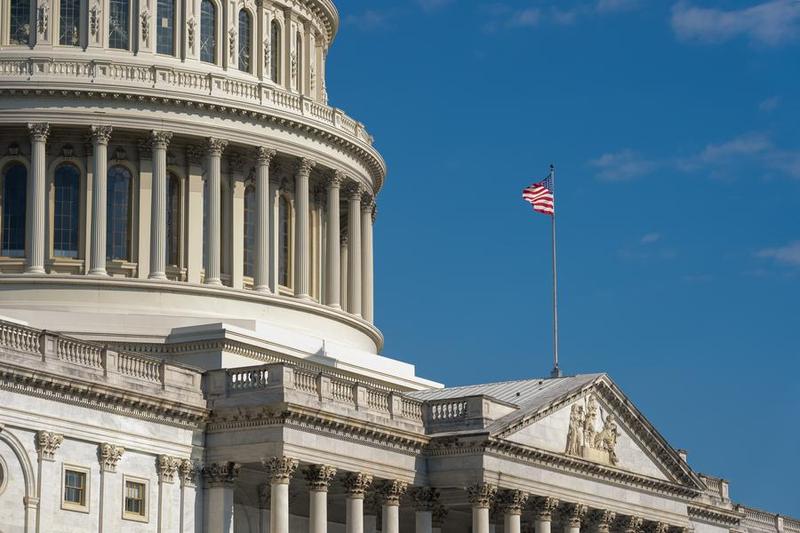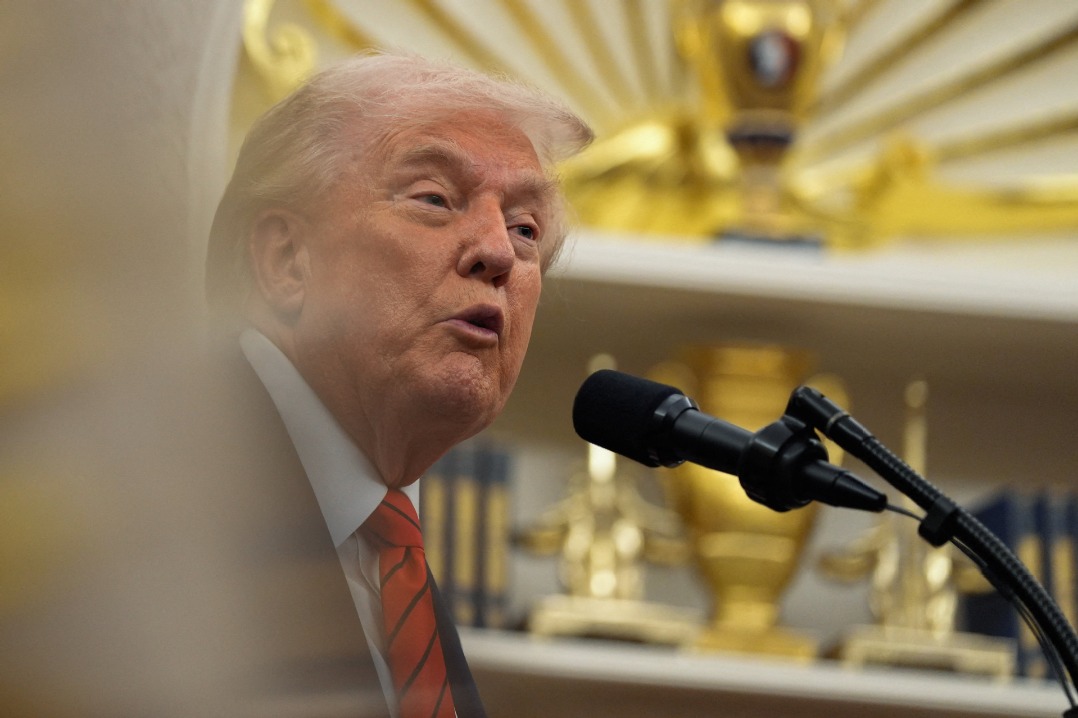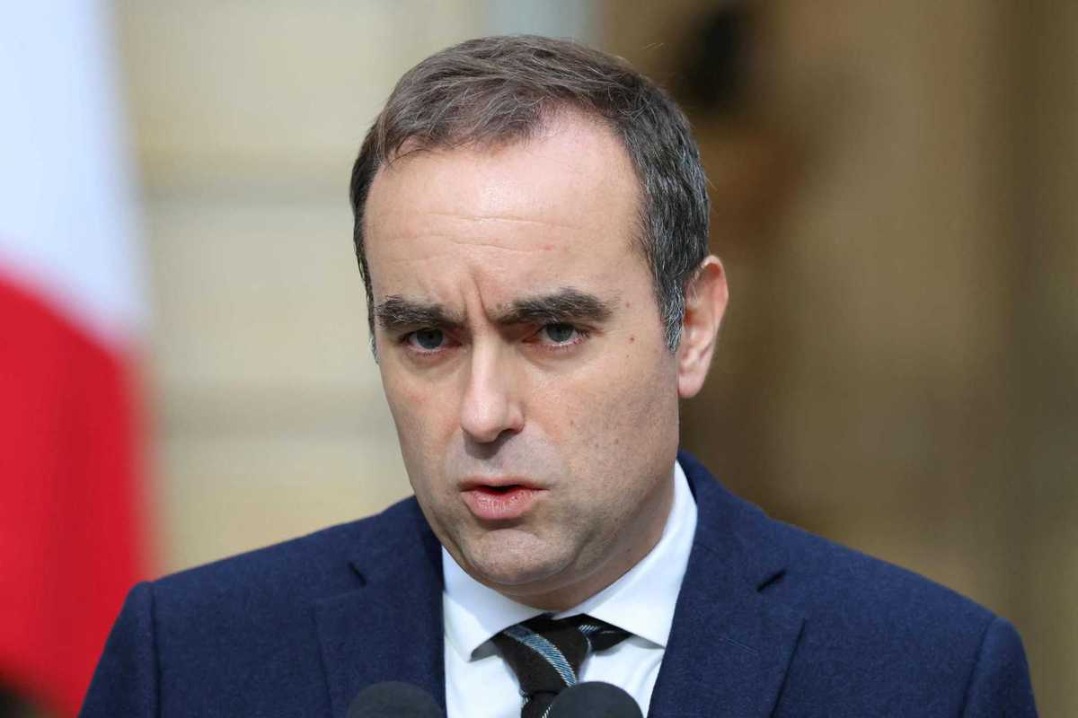Trump sues California, escalating standoff


The Trump administration on Wednesday launched a sweeping legal assault on California's policy of allowing transgender students to participate in school sports according to their gender identity, escalating an already high-stakes conflict between the federal government and the nation's most populous state.
In a lawsuit filed in the Central District of California, the US Department of Justice alleged that California's inclusive athletic policies violate Title IX, a federal civil rights law enacted in 1972 to prevent sex-based discrimination in federally funded education programs. The lawsuit claims the state's approach unfairly disadvantages cisgender female athletes and threatens to withhold billions of dollars in federal education funding.
"Title IX was enacted over half a century ago to protect women and girls from discrimination," said US Assistant Attorney General Harmeet Dhillon in a statement. "The Justice Department will not stand for policies that deprive girls of their hard-earned athletic trophies and ignore their safety."
California officials, however, firmly rejected the allegations and refused to comply with federal demands to ban transgender students from participating in school sports aligned with their gender identity. Citing state law that prohibits discrimination based on gender identity and sexual orientation, California education authorities reiterated their commitment to protecting LGBTQ+ rights in schools.
The conflict marks yet another flashpoint in an intensifying standoff between President Donald Trump and California's Democratic leadership, one that analysts describe as testing the very limits of US federalism.
This lawsuit is only one part of a broader political and administrative offense by the Trump administration against California in recent weeks. The president has moved to override the state's environmental protections, deployed federal agents to Los Angeles in controversial immigration raids, and clashed with California's political leadership over the deployment of the National Guard.
"We're at a full-blown crisis point in the conflict between California and the Trump administration," said Democratic strategist Katie Merrill. "It's orders of magnitude more than what we've seen, ever."
Trump has made no secret of his disdain for California's progressive policies, which have long been portrayed by his allies as emblematic of what they call "radical leftist governance." The president's recent actions, including a threatened $3.8 billion cut in federal education funds, suggest a concerted effort to reshape California's compliance with federal conservative norms through legal and fiscal pressure.
At the heart of the transgender athletes lawsuit lies a growing national debate over how civil rights laws should be interpreted in the 21st century. While federal officials claim their actions defend women's rights under Title IX, California and its allies argue the law must evolve to recognize and protect gender-diverse students.
"This president won't take 'no' for an answer," said Xavier Becerra, former US health secretary and California attorney general. "He'll continue to try to do it his way even if it runs counter to the Constitution."
Current Attorney General Rob Bonta echoed that sentiment, noting that the scale and pace of legal challenges from Washington have dramatically increased during Trump's second term. "The speed and the volume in Trump 2.0 is materially different," Bonta said. "The shamelessness and brazenness of the violations — they seem more severe."
The lawsuit carries significant financial implications. According to federal estimates, California stands to lose access to nearly $44.3 billion in educational support in fiscal year 2025, including roughly $3.8 billion currently eligible for disbursement through grants.
Beyond financial threats, the federal offensive may have wider social and political effects. Advocates warn the administration's stance could deepen divisions across American society, embolden discrimination against minority communities, and roll back years of hard-won protections for gender equality.
"It's a calculated power move," said Jessica Levinson, professor at Loyola Law School. "If you have a power struggle between the federal government and the states, chances are pretty high that the federal government wins."
As the world's fourth-largest economy and a global hub of innovation and multiculturalism, California's legal battles with the Trump administration are being watched far beyond US borders. The state has long positioned itself as a model for progressive governance, advocating for climate action, immigrant rights and LGBTQ+ inclusion.
"This is not just a local issue — it's a global signal," said Mike Young, executive director of California Environmental Voters. "The world is watching how the US treats diversity, inclusion and state autonomy."
While the lawsuit over transgender athletes might appear to focus narrowly on school sports, many observers see it as a symbolic flashpoint in a broader struggle over civil liberties, democratic norms and the scope of federal power.
"The moment we've feared has arrived," California Governor Gavin Newsom said. "This is not only about California. It's about whether states can uphold values of equity and justice when the federal government chooses to undermine them."
Agencies contributed to the story.

































